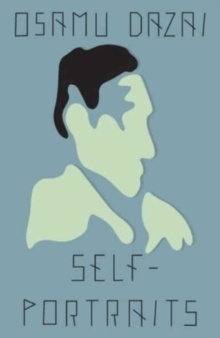Self-Portraits

Editorial New Directions
Fecha de edición enero 2024 · Edición nº 1
Idioma inglés
EAN 9780811232265
256 páginas
Libro
encuadernado en tapa blanda
Dimensiones 132 mm x 203 mm
Resumen del libro
Bringing together novelist Osamu Dazai's best autobiographical shorts in a single, slim volume, Self-Portraits shows the legendary writer at his best-and worst
Art dies the moment it acquires authority. So said Japan's quintessential rebel writer Osamu Dazai, who, disgusted with the hypocrisy of every kind of establishment, from the nation's obsolete aristocracy to its posturing, warmongering generals, went his own way, even when that meant his death-and the death of others. Faced with pressure to conform, he declared his individuality to the world-in all its self-involved, self-conscious, and self-hating glory. Art, he wrote, is I.'
In these short stories, collected and translated by Ralph McCarthy, we can see just how closely Dazai's life mirrored his art, and vice versa, as the writer/narrator falls from grace, rises to fame, and falls again. Addiction, debt, shame, and despair dogged Dazai until his self-inflicted death, and yet despite all the lies and deception he resorted to in life, there is an almost fanatical honesty to his writing. And that has made him a hero to generations of readers who see laid bare, in his works, the painful, impossible contradictions inherent in the universal commandment of social life-fit in and do as you are told-as well as the possibility, however desperate, of defiance.
Long out of print, these stories will be a revelation to the legions of new fans of No Longer Human, The Setting Sun, and The Flowers of Buffoonery.
Biografía del autor
Osamu Dazai, nombre artístico de Shx{0026} x0016B;ji Tsushima, nació en 1909 en la prefectura de Aomori en el seno de una familia de terratenientes. Desde muy joven mostró unas extraordinarias dotes literarias, pero también un carácter rebelde, disoluto y con tendencias suicidas. Abandonó los estudios de Lengua y Literatura Francesa en 1935 afectado por una profunda crisis existencial y decidió dedicarse exclusivamente a la escritura después de que sus primeros relatos fueran publicados en varias revistas. Sin embargo, el periodo más intenso de su actividad literaria fue después de la Segunda Guerra Mundial, cuando escribió novelas como El ocaso, Indigno de ser humano y La caja de Pandora, que lo convirtieron en uno de los escritores más destacados de la llamada Burai-ha, la escuela de autores cuyos estilo y temas se centraban en la crisis de identidad de Japón después del conflicto. Con una salud mermada por la tuberculosis y por la adicción al alcohol y a otras drogas, fue hospitalizado en varias ocasiones, y, en el culmen de su carrera, tras varios intentos de suicidio, finalmente, se ahogó, junto con su amante, en 1948, en el acueducto de Tamagawa.








